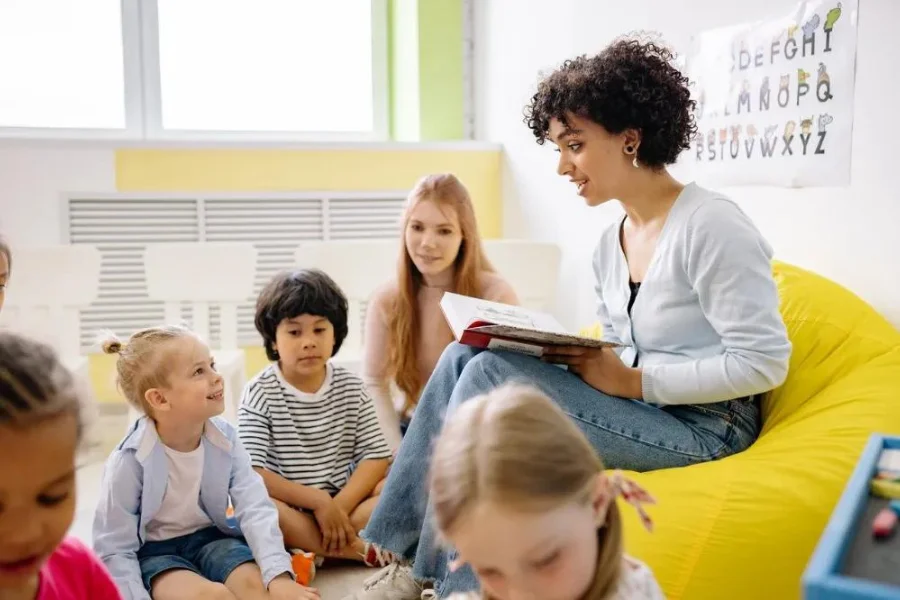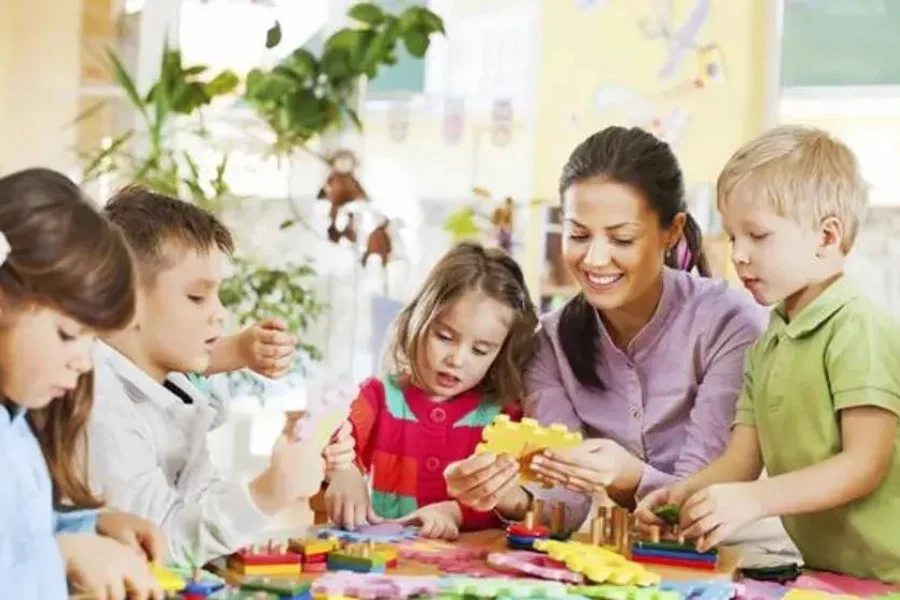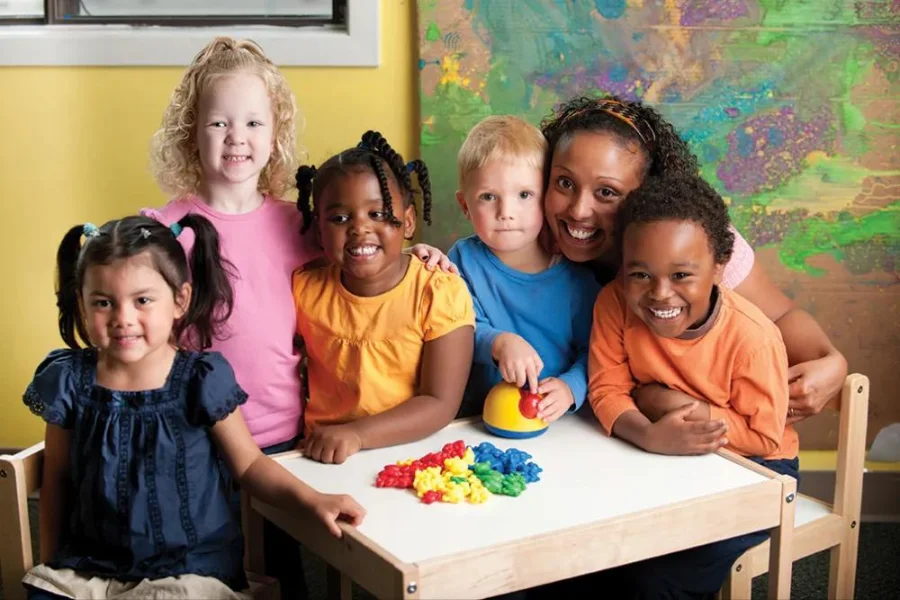Montessori Teaching Principles

Source: nea
Montessori Teaching Principles
Montessori Teaching Principles emphasize on a child-centered method to education, highlighting individuality, freedom within bounds, and respect for a child’s natural psychological growth. Rooted in the confidence that children learn best in an atmosphere that supports and respects their separate growth, Montessori Teaching Principles have transformed the way teachers and parents view learning and training.
This technique, developed by Dr. Maria Montessori over a century ago, still holds important significance in today’s educational landscape, representative the continuing power of Montessori Teaching Principles in development inquisitive, responsible, and independent learners. Through this blog, we will discover the main standards and performs that make Montessori Teaching Principles an exclusive and effective method to education.
Table of Content
Respect for the Child
At the heart of Montessori Teaching Principles is immense respect for children as unique individuals. This principle highlights detecting children without judgment, letting them to have a voice and selections in their learning. For example, children are given the freedom to choose their activities within an organised atmosphere, nurturing a sense of individuality and self-respect.
Call / Whatsapp on +919869546913 / +919869866277, for more details of Montessori Teacher Course.
To download the Montessori Teacher Course brochure, Click Here!
The Absorbent Mind
Montessori believed children have an implausible capacity to absorb material from their atmosphere during their early years. This principle is executed by providing rich, encouraging environments where children can discover and learn certainly. An example of this is in language gaining, where children naturally absorb vocabulary and grammar from their backgrounds without formal training.
Sensitive Periods
According to Montessori, children go through specific periods where they are more sensitive to certain stimuli, making it easier to acquire certain skills. Recognizing and capitalizing on these sensitive periods, such as those for language, movement, and order, educators can introduce activities that align with these natural inclinations. For instance, introducing puzzles and sorting games during a sensitive period for order can significantly enhance a child’s ability to recognize patterns and organize their environment.
The Prepared Environment
This principle involves creating an environment tailored to the child’s needs, interests, and developmental stage, enabling them to engage in independent learning. The environment is carefully arranged with materials that progress in complexity, allowing children to build upon their knowledge. A classic example is the Montessori classroom, which is organized into distinct areas for practical life, sensory activities, language, mathematics, and cultural studies, each equipped with specific materials that children are free to choose and work with.
Auto education
Montessori Teaching Principles emphasize the idea that children are capable of educating themselves. This is facilitated through a prepared environment that offers materials designed for self-directed learning. For example, Montessori resources like the pink tower or the bead chains are self-correcting, letting children to measure their work individualistically and learn from their errors without direct adult interference.
Learning with and from Peers
The mixed age classrooms common in Montessori settings encourage children to learn from each other, fostering both social and academic development. Older children reinforce their understanding by teaching concepts they have mastered to younger classmates, exemplifying peer learning. This is evident in activities like reading circles or math games, where children of different ages collaborate and learn together.

Source: prodmirror
Freedom within Limits
Children are given the freedom to select their actions within the restraints of the atmosphere, which is organised to confirm safety and encourage positive social connections. This principle imparts children to direct their choices sensibly. An example is allowing children to choose the order of their work for the day, with the accepting that they must complete a stable set of tasks.
The Educator’s Role
In Montessori education, the educator acts more as a guide than a traditional trainer, observing the children and presenting new supplies or ideas when they are ready. This needs educators to be extremely attuned to each child’s progress and interests. For example, a teacher might introduce a child to the sandpaper letters after noticing their interest in the alphabet, guiding them to trace the letters and learn their sounds.
Cosmic Education
This principle connects learning to the universe, inspiring children with a sense of wonder about the natural world and their place within it. Cosmic education is interwoven through various subjects, showing the interconnectedness of all things. A specific example is the “Great Lessons,” a series of stories that provide a big picture overview of the universe, life on Earth, human civilization, and the invention of writing and numbers.
Practical Life Skills
Teaching practical life skills is foundational in Montessori education, encouraging independence and self-care. These activities range from dressing themselves to preparing simple meals and are integrated into the daily routine. For instance, children might learn to pour water from a pitcher into a glass, developing both fine motor skills and a sense of autonomy.
Integrating these Montessori Teaching Principles into the instructive atmosphere nurtures the whole child, addressing cognitive, emotional, social, and physical development. This all-inclusive method authorises children to become confident, independent beginners, equipped with a deep love for detection and an essential motivation to learn.
Call / Whatsapp on +919869546913 / +919869866277, for more details of Montessori Teacher Course.
To download the Montessori Teacher Course brochure, Click Here!
Montessori Teacher Training Diploma
Thinking about following a Montessori Teacher Training Diploma? If suppleness and suitability are high on your rank list, then an online program might be the picture-perfect fit!
Here are some key welfares to reflect when selecting an online Montessori Teacher Training Diploma obtainable by Vidhyanidhi Education Society (Govt. regd.)

Source: theearlychildhoodacademy
Entire Course Online
Study from anywhere, anytime! This online arrangement allows you to complete your Montessori Teacher Training Diploma at your own pace, co-operative with your busy agenda.
Pre-recorded Lectures with Word-for-Word Explanations
Benefit from in-depth lectures on Montessori teaching principles, delivered by experienced instructors. The pre-recorded format allows you to revisit key concepts as needed for a thorough understanding.
No Examinations
Instead of high-pressure exams, online Montessori Teacher Training Diplomas often utilize assignment-based evaluation. This allows you to demonstrate your knowledge and grasp of Montessori principles through practical application.
Assignment-Based Evaluation
Showcase your learning through well-crafted assignments that apply Montessori teaching principles to real-world classroom scenarios.
Designated Course Coordinator for Guidance
An online Montessori Teacher Training Diploma program should provide a dedicated course coordinator to answer your questions and offer support throughout your studies.
Certificate Doesn’t Mention Online/Distance Mode
The certificate you receive upon successful completion of your Montessori Teacher Training Diploma would simply acknowledge your achievement, without specifying the online/distance mode of study. This confirms your qualification is documented and appreciated within the arena.
By choosing an online Montessori Teacher Training Diploma that deals these benefits, you can gain the knowledge and abilities you want to develop to be an effective Montessori teacher, all while adoring the flexibility and ease of remote learning.
Montessori Teaching Principles
Shape young minds! Become a Montessori teacher. Join Vidhyanidhi today!
Call / Whatsapp on +919869546913 / +919869866277, for more details of Montessori Teacher Course.
To download the Montessori Teacher Course brochure, Click Here!
FAQs
What is Montessori Course?
A Montessori course introduces you to the Montessori teaching philosophy & methods for early childhood education.
Montessori Course how many years?
Montessori teacher training programs typically last 1-2 years.
How much does a Montessori Teacher get paid?
Salaries vary depending on experience, location & school.




